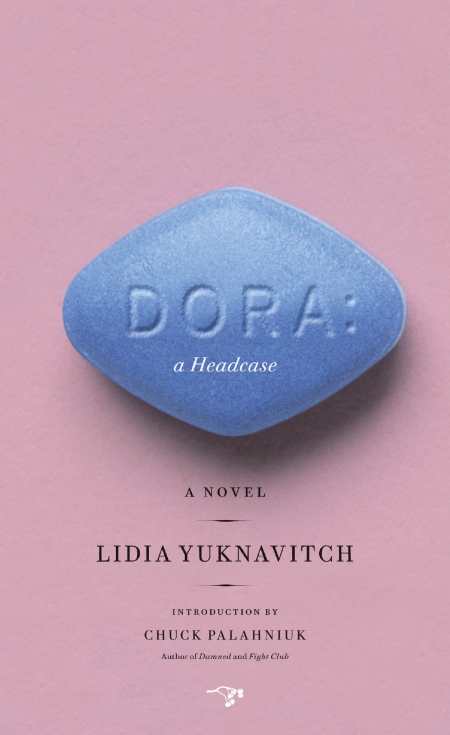Dora: A Headcase
Few parasites are as ugly as the tapeworm, with its suckers and hooks, proglottids budding off its head and neck, and the ability to grow thirty-two feet long. But nobody could seriously expect anything that lives in the human intestine to be beautiful. Much the same could be said about Ida, another kind of parasite and the main character of Lidia Yuknavitch’s newest novel, Dora: A Headcase.
A modern re-imagining of Sigmund Freud’s famous case study of Ida Bauer told from Ida’s perspective, Dora places the protagonist in present-day Seattle. Ida and her teenage friends take and steal everything they can without ever giving back in return. They torture and humiliate her therapist, nicknamed Siggy, to the point of waging war on his manhood. They drain all love and affection from their families until their parents are emotionally dried out husks. And when there’s nothing left to take from the people around them, they steal drugs from each other. But like tapeworms, vile monsters merely reflect the disgusting environments in which they were raised.
Ida, like Ida Bauer, is tormented by an emotionally absent mother, a philandering father, and the repeated advances made by the husband of her father’s mistress. She lashes out cruelly at those around her, and during intimate moments she suffers from aphonia, or loss of voice.
Unlike the case study, readers can see into the fictional Ida’s mind without Freud translating the experience. They witness the slow-burning genius behind the pathological behavior. In the novel’s absurd moments, readers connect with Ida and can’t help but laugh, even as doing so taps into the most puerile aspects of their own nature. And where Freud reduced female sexuality to something passive, the author addresses this outdated concept head on.
In one exemplary scene, Yuknavitch expands Ida’s character by complicating an aggressive nature with the hesitation of being a teenager: “When we’ve slugged a few shots, Obsidian says, ‘Where you wanna put the bottle next?’ Since she can’t see me through her hair, I say, ‘Inside you,’ blushsmiling. My skin itches. I cough. I see stars. She laughs. I wish.”
That candor, however, is not what makes Dora a book worth reading. What does is Yuknavitch’s writing. Without the background information, without an understanding of Freud, or without Yuknavitch’s scholarship—she earned a PhD at the University of Oregon, teaches at Mount Hood Community College, and won the 2012 Pacific Northwest Booksellers Award for her memoir, The Chronology of Water—Dora: A Headcase remains an engrossing read. The sustained voice of Ida is a narrative tour de force. It’s angry, lonely, stomach-churningly ugly, and rings unwaveringly, perfectly true.
As revolting as a tapeworm or Ida can be, both are survivors and fascinating in their own right. But it takes a talented writer to make that kind of story palatable, much less amazing. Lidia Yuknavitch is that writer.
Reviewed by
Joseph Thompson
Disclosure: This article is not an endorsement, but a review. The publisher of this book provided free copies of the book to have their book reviewed by a professional reviewer. No fee was paid by the publisher for this review. Foreword Reviews only recommends books that we love. Foreword Magazine, Inc. is disclosing this in accordance with the Federal Trade Commission’s 16 CFR, Part 255.

